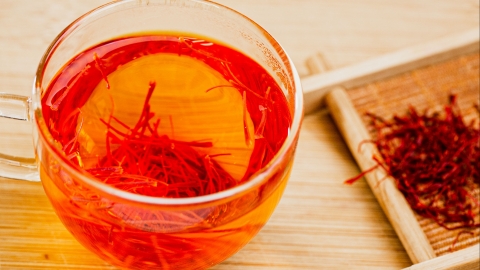Who should not drink saffron?
Generally speaking, saffron is a traditional Chinese herbal medicine. It is usually not recommended for women during menstruation, pregnant women, patients with gastrointestinal diseases, individuals about to undergo surgery, people with allergic constitutions, and other similar groups to consume saffron. If discomfort occurs, prompt medical attention is advised. The detailed explanation is as follows:

1. Women During Menstruation
Saffron has the effect of promoting blood circulation and removing blood stasis. Women who are menstruating or experiencing heavy menstrual bleeding may see an increase in blood loss after consuming saffron, which could lead to anemia.
2. Pregnant Women
Saffron promotes blood circulation, regulates menstruation, removes blood stasis, and disperses nodules. Consumption of saffron by pregnant women may lead to miscarriage and cause adverse pregnancy outcomes.
3. Patients with Gastrointestinal Diseases
Due to its cold nature, saffron may irritate the gastrointestinal tract in patients with gastrointestinal diseases, causing symptoms such as abdominal pain, diarrhea, nausea, and vomiting.
4. Individuals About to Undergo Surgery
Patients scheduled for surgery should avoid consuming saffron to prevent excessive bleeding during the procedure, which could negatively affect their health.
5. People with Allergic Constitutions
For individuals allergic to saffron, consumption may trigger allergic reactions such as skin itching, localized rashes, and difficulty breathing.
It is recommended to consult a physician or traditional Chinese medicine practitioner before consuming saffron to ensure safe usage. Additionally, saffron should be consumed in moderation, avoiding excessive intake, to maintain good health.





